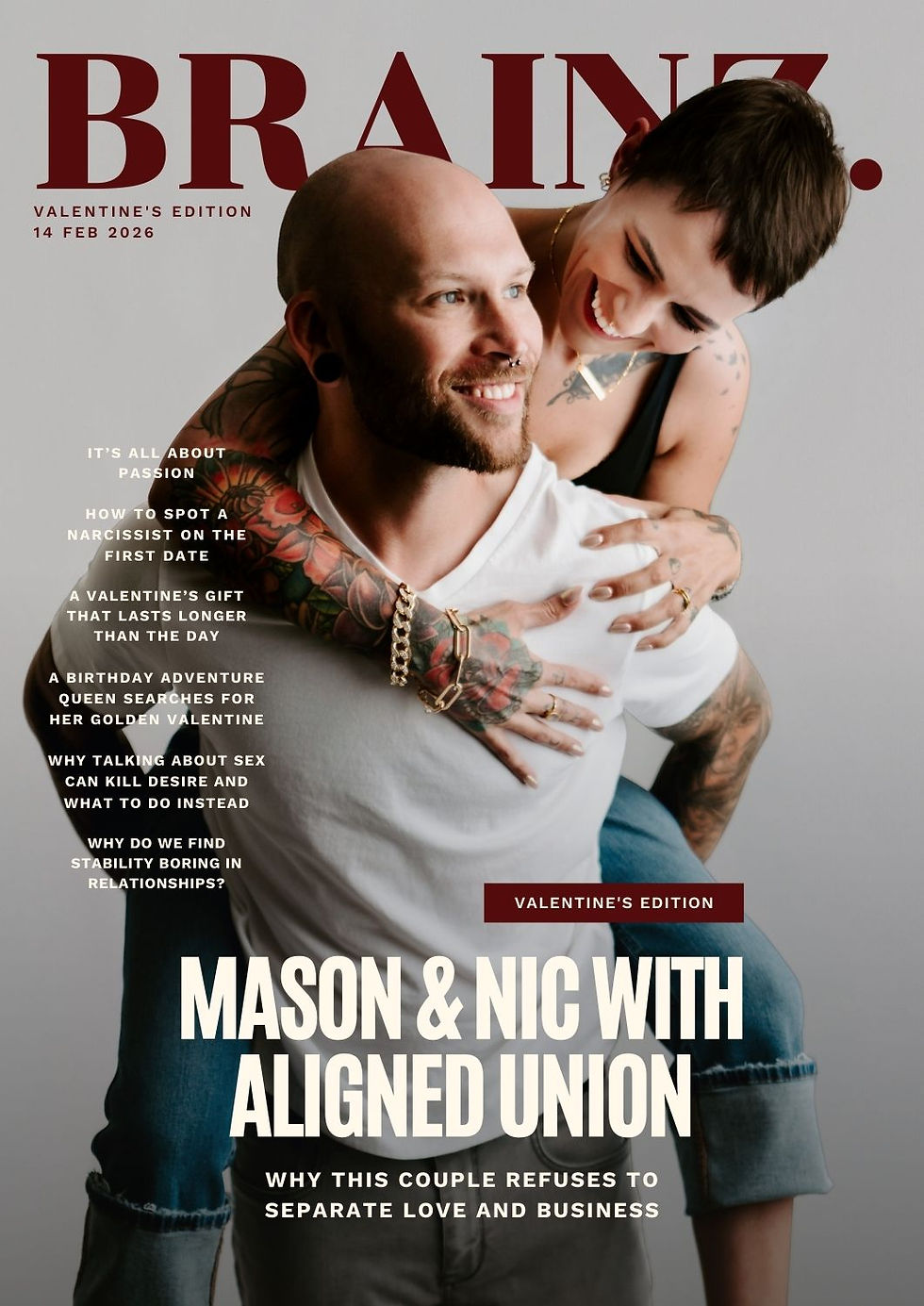When It’s Bad To Keep The Peace At Work
- Nov 25, 2021
- 4 min read
Written by: Raeesa Mahomed, Executive Contributor
Executive Contributors at Brainz Magazine are handpicked and invited to contribute because of their knowledge and valuable insight within their area of expertise.

The last decade or two has seen a huge shift in the way work teams or employees are managed in the workplace. The work esprit is for managers to move away from being ‘bosses’ and the top-down approach to being leaders who guide, encourage and consult. Companies globally undertook a shakeup in all systems to ensure the implementation of this new culture, often supported by equitable labour legislation and strong unions. This was seen (and rightly so) as a welcome shift away from a culture of authoritarian managers who dictated to their staff without taking their needs or opinions into account to a kinder, more inclusive and democratic approach.
But like all things that are not wisely handled, there can be too much of a good thing. Very often, too much emphasis is now given on ensuring people are treated with kid gloves at all costs and in the process, the damage is done to the business. As important as it is to remember that we are dealing with human beings and treating them well is vital, it is as important to remember that there is a business to run that has to be profitable at the end of the day, or reach whatever goal it has or was set up for. Treating people well is not just the right thing to do, but in most cases, it will result in more motivated and better performing employees. However, what happens when certain team members just won’t perform?

After they have been asked respectfully and reminded to carry out their duties and whatever they have been hired for and are paid for? If an employee has certain challenges, they should of course be given the necessary tools and necessary assistance to equip them to perform adequately. But there are those who continue not performing after all interventions have been carried out.
Most companies have procedures to deal with this effectively, starting from having a discussion with the employee and then taking it further if that does not work. This usually involves some kind of intervention and then a disciplinary process. But there are some managers or team leaders who place being liked or avoiding conflict at all costs above the needs of the business. When this happens, damage is increasingly done to the company or organisation. Because let’s face it, at the end of the day, people are not appointed to make friends and be popular. The primary function of all personnel is to drive the success of the business’s bottom line and to ensure that goals are achieved and standards and quality are maintained. That is what ensures success and longevity of a business, not that everyone is happy at all costs. That means making sure that deliverables are met, which means enforcing policies and regulations, even if it makes one unpopular. It must be stressed here that one is not advocating disrespect or high handedness. Using correct channels of conflict resolution and human resources management must be stressed. Addressing poor performance and facing conflict does not mean being high handed, overbearing or aggressive. It simply means applying necessary means to address problematic employees, whatever the nature of the transgression. However, there are managers who would rather bury their heads in the sand than deal with problematic team members. When this happens, not only does it cause damage to the business or organisation, it also impacts negatively on other colleagues. It is extremely frustrating for a high performing team member to watch a non-performing one not being called to account. Managers who do this are in danger of losing their quality staff, who, if they see no change, will either revolt or leave. Either way, it’s just bad for the business. This might seem like a no brainer, but it is a fact that there are many businesses that are suffering because of managers failing to deal effectively with employees. When the right action is taken swiftly, not only is it good for productivity and profit, it also gives a clear message to the entire team that there is an effective leader at the helm and that everyone is treated fairly. That means employees who might otherwise find it convenient to shirk their duties realise that maybe it’s not such a good idea, and those who are high performing know that their efforts are validated. For, as important as it is to deal effectively with under-performance, it is as important to acknowledge and reward good performance. That will ensure a successful, loyal, productive team. So next time you want to keep the peace at all costs so you can come across as the ‘nice guy’, think again.
Raeesa Mahomed
Transformational Life Coach
Want to learn more from Raeesa? Follow her Facebook, Instagram, Linkedin, and visit her website. You can also email her at info@raeesamahomed.co.za.

Raeesa Mahomed, Executive Contributor Brainz Magazine
Raeesa Mahomed is a transformational life coach, and her tagline 'Be the best you' aptly describes the results she gets with her clients. Raeesa has helped hundreds of clients remove negative programming from the subconscious mind and take them to a place of positivity and empowerment and, in so doing create the life they want. She comes from a decades-long award-winning international career in radio, TV, and film, and her path to deep self-reflection and life coaching began when she faced a life-threatening illness a few years ago. She now also helps others heal from disease by addressing their emotional health and spirituality. She is also a writer and motivational speaker.









